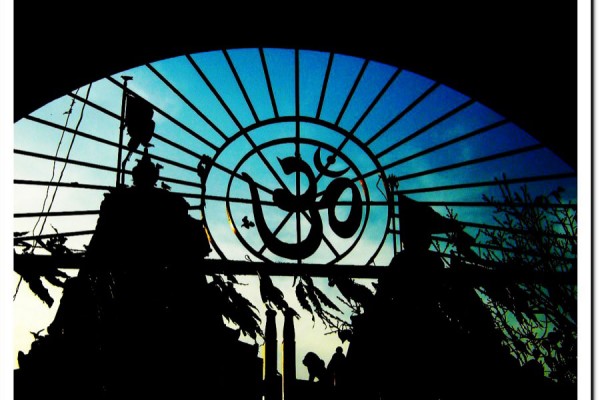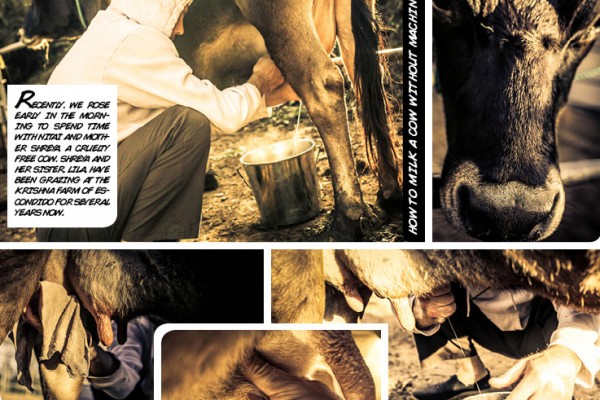Imagine yourself in an old, vintage-style train car for three hours, but you’re not sitting—you’re standing. You’re standing because the train is so jam-packed you cannot move without bumping another body. “Fortunately,” you think to yourself, “I am by the door, so once the train starts moving I will have some space.” Yet, just as the train begins to haul forward, five more people jump on as you desperately try to wave your hand to signal “no room, no room!”
Not only will you be standing for three hours, but you realize you’re standing by the bathrooms as the scent of urine and other not-so-fragrant bodily by-products barrage your nostrils. As people begin to light up their cigarettes, you contemplate trying to find some room on the floor to sit, but you reject that idea, unsure of what exactly you might be sitting on.
At every dreaded stop, people rush in, yelling as they try to sell their various foodstuffs and knick-knacks, pushing their way through the sea of people. Every now and then someone in aged and torn cloth comes up to you and tries to provide a service so as to claim their right for a donation. Resultantly, you hold tightly on to your belongings for the fear of idle pick-pocketing hands. And to top it off, you’re a foreigner on the train so everyone is staring at you as if you are some new born panda at a zoo.
Well, in my case, welcome to India!
What Would You Think?
For those coming from highly complex, industrialized societies, with luxuries almost unimaginable to those in third-world countries, the above interlude probably sounds calamitous, hectic, and a situation to be avoided as far as possible. As for everyone else on the train, it was just another normal day—an every day part of life. No stress or lamentable feelings involved. In fact, everyone seemed at ease. Even those in aged and torn cloth were rather going blithely about what appeared like their normal, every day routine.
As Americans though, there is typically a sense of entitlement when it comes to being plunged into such a situation where one’s standard of comfort is decreased. Why? Because we have so much facility in the West, that when something or someone comes in the way of it, we either resist or generally try to avoid it or them.
We have been blessed with many material resources; however, we should ask ourselves: “What am I doing with the assets I have been given?”
Glad It Isn’t Me
Are we simply living as misers? A miser, according to Merriam-Webster is someone who is “stingy with money,” and on a broader level, a miser means someone who does not use one’s assets properly. The miser is always thinking, “What is in it for me?” In other words, the miser is small-minded, thinking only in terms of one’s own desires and whims. What a miserable condition!
In America we see huge SUV’s driving around, giant three story houses with jacuzzis, two-car garages full of unlimited qualities of possessions, high-tech home security systems, water beds, closets full of expensive clothing, and the list goes on. And then, with the accumulation of wealth there are subsequent excursions to the movies, restaurants, and amusement parks. There is definitely no question of a lack of facility in the West, and some may even call it advancement of human civilization!
If those with such facility were to see the people on that train, my guess is they would feel sorry for their poverty and think “thank goodness it’s not me.” The more compassionate individuals would want to help such people by giving charity. But we must realize that the Western countries are also impoverished. Their poverty, however, is of a much more subtle nature, one that is often over looked as such.
Did you know that anti-depressant use has sky-rocketed 400% since the early 1990’s? That means one in ten Americans use anti-depressants. Along the same line, over 100 million prescriptions of benzodiazepine sleeping pills are prescribed in the US alone. Suicide, now the number one killer, is higher for those in the upper income level bracket. So what does this mean? Despite all material assets, money, and prestige, people are still so miserable and anxiety-ridden that they must take anti-depressants, sleeping pills, or even try to end their life!
There is utter poverty of mental stability in the Western countries. Before we pride ourselves in our technological advances as we look at our fellow third-world countrymen, we must open our willfully closed eyes to our own poverties of heart and mind.
Coat Compassion
There are three types of charity. Food, shelter, clothes and hospitalization are charities for the body. Encouraging people to be good-natured and friendly are charities of the mind. And to give someone knowledge and the facility to understand one’s spiritual needs and purpose in life are charities for the soul, which are the highest forms of charity because they provide one the opportunity to actualize one’s full potential.
All three types of charity should ideally go on side by side. However, charity for the body and the mind can only take one so far. Why? Because our needs are actually spiritual; therefore, the facilities of the mind and body are only beneficial insofar as they help us achieve our real needs. For example, we can clean a bird’s cage, and tell the little guy he’s such a great parrot, but if we do not feed him, what will become of his existence?
Similarly, if someone is drowning in the ocean and all we can do is rescue their coat and wallet from the stormy waves, what ultimate good does that do for the actual person? We must be weary of this type of coat compassion, because the coat of this body and mind are temporary. It is the soul, the conscious observer, which is of utmost importance. From this perspective, Vedic Indian culture is actually quite wealthy.
Lotus Among The Mud
From a material perspective we can see that India is suffering from poverty. However, there is a hidden wealth buried deep within the philosophy of its roots. The wisdom of yoga, coming from Vedic India, has inspired millions of people for millennia to aspire for and achieve perfection of one’s existence—finding true inner-fulfillment and pleasure in life.
Instead of engaging one’s conscious experience in temporary, external sensory pleasures, one turns their consciousness inwards to look for pleasure within, from the beauty of the soul. Such a quest allows one to uncover that happiness, which does not depend upon the fleeting environmental circumstances; whether we have a nice job, house, spouse, body, and so on. Rather, one finds self-satisfaction in the simplicity of living a devotional life in harmony with the Absolute Truth.
Since living here in Mayapur, India, for several months, I have observed the principles of simplicity, self-satisfaction, and self-control amongst the people here. Life is overwhelmingly complicated in the west, with so much competition and corporate greed that the mental health of the people resultantly suffers vehement damage from such a lifestyle, which is based on unrestricted consumption. The more I stay here, the more I can observe the stark contrast. That initial train ride was quite hectic and intense for me, but I now appreciate the great reprieve India has brought me from our technologically high-maintenance culture.
So, although there is a lot of poverty in India, there is also a lot less distraction, thus giving one the opportunity to spend time reflecting on one’s purpose, meditating, and for researching the nature of the Absolute Truth. Therefore, the spiritually impoverished Westerners actually have a lot to gain from the wealth of philosophy within India—just as much, if not more, than India has to gain from the West with all their material resources.
Statistics show that the monetarily wealthy Indians who have been whisked away by materialistic consumer culture and are now living a modern, spiritually-impoverished American lifestyle here in India are also suffering from the same trends as mentioned above—experiencing the same anxiety-ridden mental health problems. This elucidates the point that mere material wealth and resources, when devoid of a spiritually-inclined lifestyle, cannot give full stability of mind and heart; whereas, the hearts and minds of those living in accordance with the higher principles of spirituality are equipoised, despite the unexpected disturbances that life brings. In fact, even if such a person has nothing, they can be fully satisfied.
There’s a story of a lame man and a blind man. The blind man, needing some assistance across a bad piece of road, stopped the lame man to ask for help. The lame man replied that he could barely walk, let alone help anyone else. So they came up with a plan. The blind man said, “We may help each other. If you will take me on your shoulders, we will seek our fortunes together. I will be eyes for you, and you shall be feet for me.” In this way they offered each other their mutual services. Similarly, the spiritual vision of the East must be combined with the material footings of the West in order for real, positive change to happen for humanity regarding the poverties of body, mind, and soul.






Premila Citkara
Recently I’ve been thinking of writing a post on the three types of charity as explained in the Bhagavad Gita.
What you have written is really nice, so I’ll share this article with some friends.